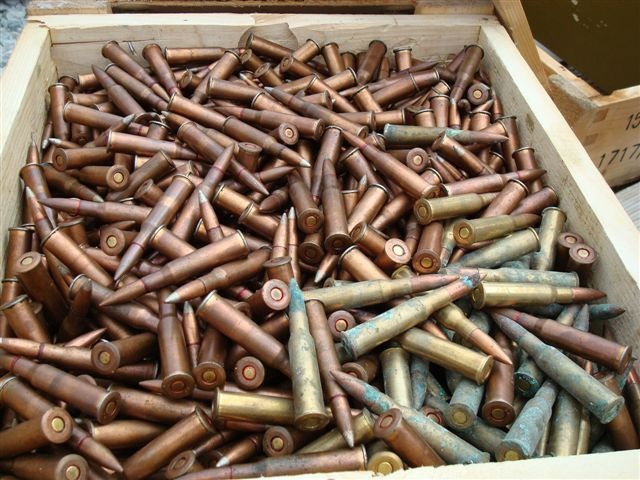I don’t think I’ve ever written anything positive about WaPo editorial page editor Fred Hiatt (so maybe I should give this more thought?). That’s mainly because of the page’s relentlessly establishmentarian tone and our radically different ideas about foreign policy. But here’s a column that is important and which you should read. Hiatt gets at a key issue: the biggest victory of the NRA over the last generation isn’t so much making even the slightest and most modest gun control measures a political impossibility. The bigger win is the strategic victory of focusing the ‘debate’ on to such small-bore measures. Let me unpack what I mean by this.
Closing the gun show loophole would be a good thing. Having more aggressive background checks would be good. Banning certain sizes of ammunition magazines would be good. But these are all small, incremental changes that would still allow someone with a clean record to buy a bunch of high caliber hardware and do the next mass shooting. What would make a real difference would be a society where there were radically fewer guns, where buying a gun meant getting a license, needing to follow specific safety guidelines, where you couldn’t build your own armory, where you had to carry insurance to own a weapon (like you do with a car and most everything else), etc.
Some would likely favor a ban on private firearm ownership altogether. That doesn’t strike me as necessary even under the most ideal conditions. But the central point is that the NRA has shaped the debate in such a way that they can not unreasonably argue that the policies most gun control groups advocate would only have an effect on the margins. So what’s the point?
And yes, what is the point? This crimped debate enervates and demoralizes advocates for change since how hard are you really supposed to fight for very minor changes on the margins of gun policy?
Now, as I noted yesterday, the problem isn’t the NRA. It’s that support for unfettered rights to guns has grown tremendously over the last generation and politicians in most parts of the country don’t want to go up against that. Understandably. But the first step to creating change is to understand and think about – even if only in the minds of those who wish it – what change would actually look like, what it would mean, what would be ideal.
Something like half the privately owned guns in the world are in the US. The rate of purchase of new guns and ammo has risen dramatically in the last decade. We’re now actively debating things that no civilized country has ever even contemplated – the right to take a semi-automatic weapon into a family restaurant or shopping mall. Meanwhile, mass ownership of guns has become and is becoming more and more deeply embedded into the political culture of a vast segment of the population.
Now, if you’ve read what I’ve written over the years, you know that I despise nothing more than political purism and escapism. There are still folks who say in so many words, the compromises and shortcomings of Obamacare are just so messy so I’m going to oppose it and feel better about myself by insisting on single payer – even though that has nothing to do with the political reality of the moment or anything that seems likely to be at any point in the near future. But there are many health care advocates who passionately believe in single payer but recognize that Obamacare is better than what we had before. So they support Obamacare but also keep in mind and will work politically for single payer.
This is what we need on guns. Those of us who see the current situation as not just non-ideal but actually a sort of societal sickness need to start thinking way beyond things like closing the gun show loophole.
In other words, yes, we really do want to take your guns. Maybe not all of them. But a lot of them.






